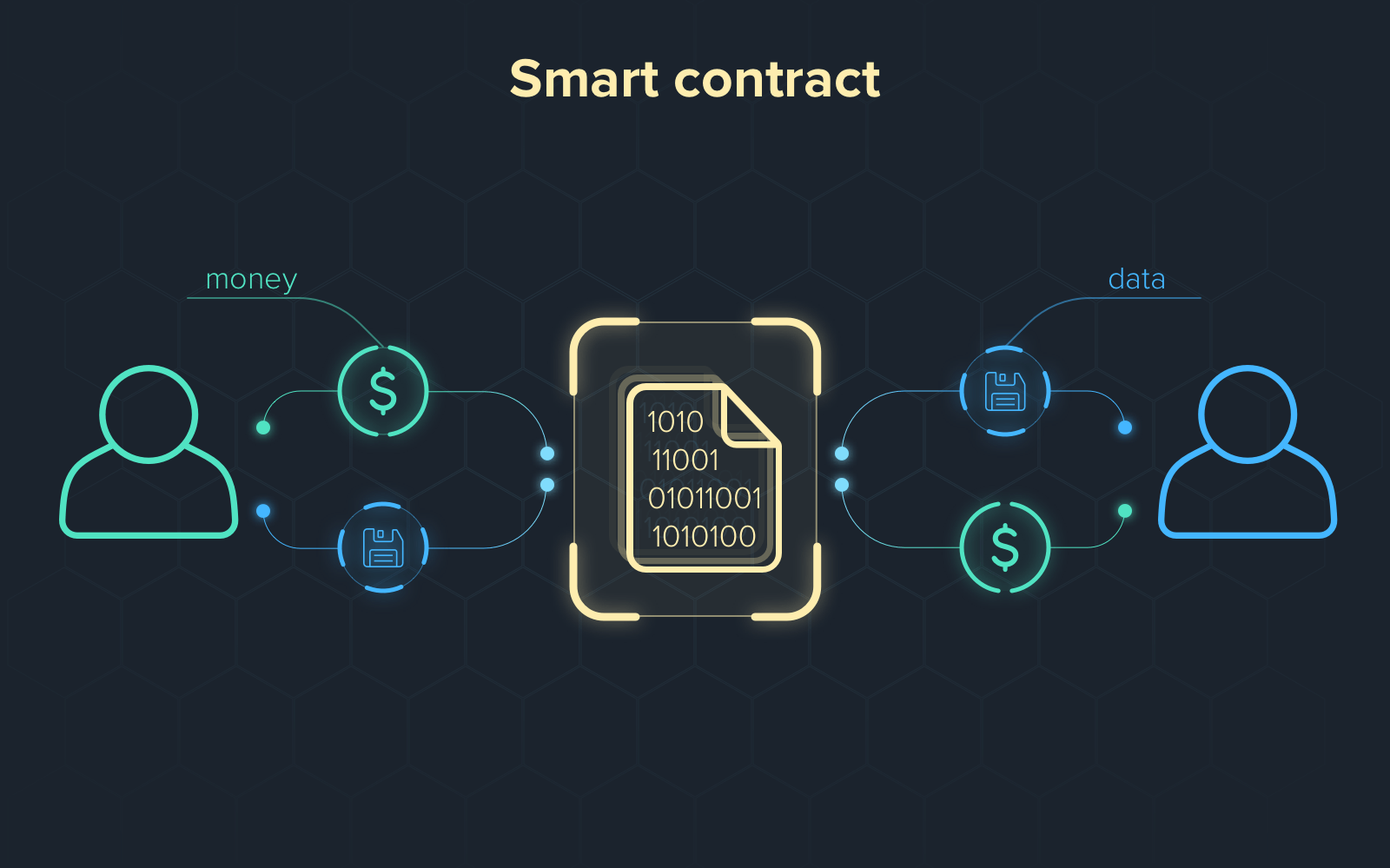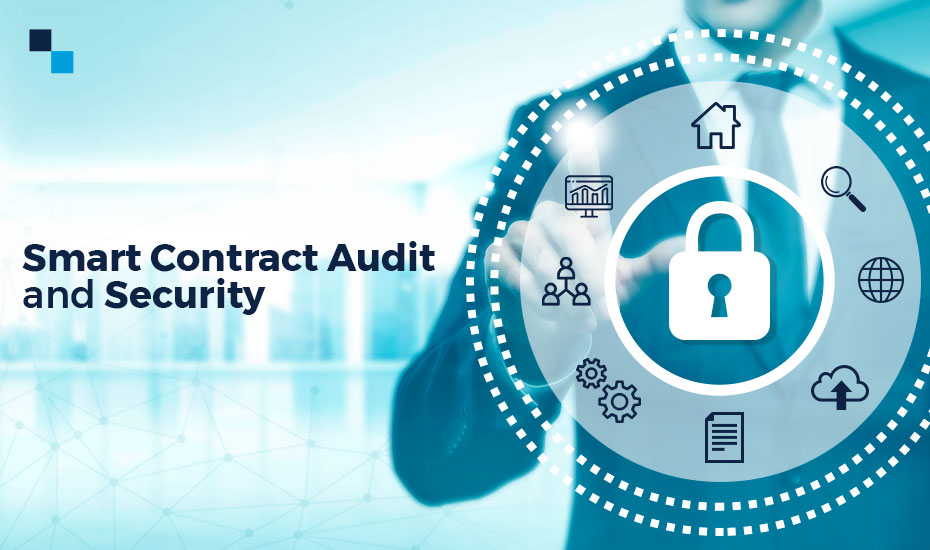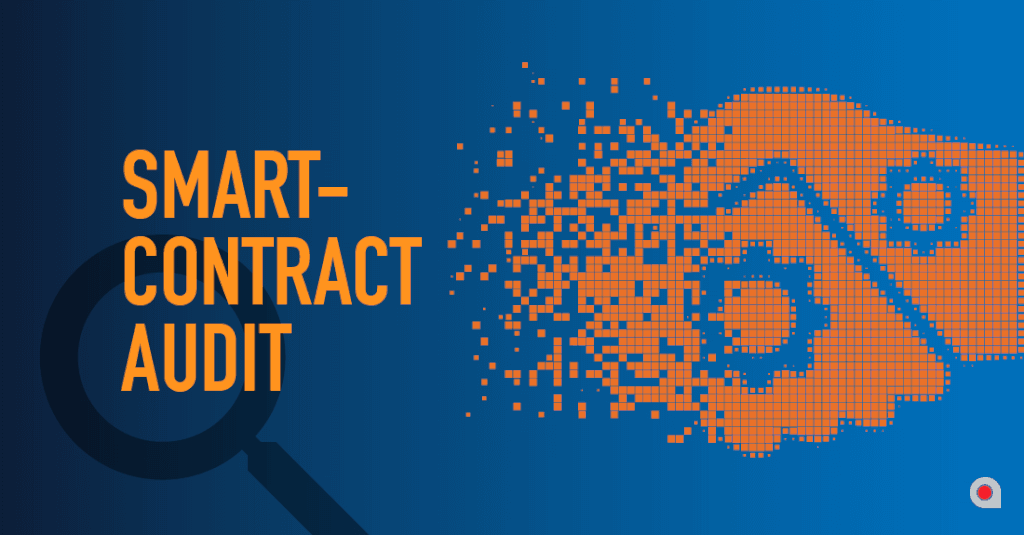Today, let’s discuss practices of smart contract auditing!
Why does this matter?
More and more businesses have used blockchain technology to enhance their operations and productivity. Most of them do not pay enough attention to security, though, as they think the technology is hack-proof.
Unfortunately, we confirm that the security problems of the blockchain are alarming. Every business needs to keep its guard up, starting by understanding smart contracts – the core of blockchain technology and its security practices.
What is Smart Contract?

Smart contracts are the heart of blockchain government.
“Contracts” refer to the terms of an agreement between the seller and buyer, written into code lines across a decentralized network, such as blockchains, to execute, track, and reverse transactions. Thus, participants within a blockchain need to define how to represent their data, explore as many exceptions as possible, and agree on a framework to resolve disputes, if any.
“Smart” characteristic, meanwhile, refers to the self-government of the contracts. Those contracts can automatically run with pre-determined conditions – simply, “if/when…then…” statements, and trigger the following action without the intervention of a centralized authority, external enforcement, or the legal system. As a result, the overarching principle of smart contracts improves transparency and reduces fees and conflicts simultaneously.
Developers initially programmed smart contracts. However, many businesses now use web interfaces, templates, or digital tools to structure bulk smart contracts.
Is Smart Contract Secure?
Blockchain and smart contracts are supposed to be secure, considering that the chain and its data are only visible to authorized participants. More importantly, each transaction needs to meet various pre-determined conditions to be executed.
Smart contracts, nonetheless, are not perfectly immune to security-related vulnerabilities. The nature of software systems is weak to attacks. Smart contracts, as a piece of software, are no exception.
According to one report in 2018, one out of twenty smart contracts in blockchains were at risk of hacking to leak data to arbitrary users, indefinitely lock funds, or delete valuable data. Even Ethereum, the huge cryptocurrency platform, once reported over 32,000 vulnerable smart contracts containing $4.4 million are susceptible to exploitation.
Vulnerabilities such as re-entrancy, front running, integer overflow/underflow, DoS, and ETH send a rejection. Insufficient Gas briefing etc., can result in bugs and significant loss. Unlike other common bugs in software that can be fixed with patches, it becomes more challenging to fix bugs in the blockchain world since a blockchain is not possibly undone.
Read more: DeFi – One of the typical smart contract attacks
The Importance of Smart Contract Auditing

What Is Smart Contract Auditing?
In the traditional finance world, auditing is to examine or inspect various books of accounts to ensure all departments have closely followed the rules of documenting transactions, thus, ascertaining financial statements’ accuracy.
Regarding blockchains, smart contract auditing is essential to ensure all transactions are appropriately done.
The auditing process mainly refers to a regular and highly-investing code audit to find any security flaws and vulnerabilities before the developers only deploy the code to a blockchain. Those who perform auditing must have a good knowledge of smart contracts and the contract terms between parties.
A smart contract auditing process usually follows two steps:
- Automatic Code Audit – The automation saves developers a massive amount of checking time and allows them to perform periodic penetration testing to detect underlying errors and vulnerabilities.
- Manual Code Review – The automatic tools are not a complete silver bullet. Developers still need to investigate one by one code lines to scrutinize the sophisticated mistakes and security issues.
Why Is Smart Contract Auditing?
In short, frequent smart contract auditing has the following benefits:
- Improving the performance of smart contracts
- Optimizing code writing and structuring
- Safeguarding your blockchain against hacking
- Securing the users and their wallets
At its heart, the smart contract helps detect and fix vulnerabilities before hackers exploit them and damage your platform. The business can also proactively prepare plans to deal with exploitation in the future.
Top Practices of Smart Contract Auditing

Have you run smart contract auditing frequently, or do you know the best practices of the auditing process? – If not, you must take notes of our recommendations as follows.
#1. Write a More Secure Smart Contract Code
Establish a secure coding development in the very first place instead of waiting for the automatic tools or auditing developers to detect the flaws.
- Clearly describe terms of smart contracts and exceptions
- Generate architectural diagrams and schema in advance
- Select a programming language wisely.
- Follow practices of blockchain-specific development.
- Implement a logging function to track all events and operations.
- Well-document migrating and upgrading procedures.
- Be cautious with extra functionality.
#2. Carry out Analyses of Your Code
Even when you write secure smart contracts following the best practices, hackers can make even extra effort to exploit security loopholes. Thus, you cannot let your guard down. Instead, you should run periodic auditing to give you time to fix potential vulnerabilities beforehand.
The auditing starts with analyses, both static and automatic.
- Perform static analyses to detect vulnerable codes and style inconsistency.
- Take advantage of trusted security analysis tools: MythX, Mythril, Oyente, Echidna, etc.
- Plan for testing, including penetration, security, and performance testing.
#3. Run Penetration and Additional Tests
Significant testing costs time and effort, yet it is essential to secure your smart contracts. You can use tools the blockchain platforms provide or add-on services to save your resource, such as Linters, Formal verification, Symbolic execution, etc.
- Run penetration testing to check against the blockchain database and manually simulate attacks against the smart contracts.
- Also, test for all the vulnerabilities alerted by the SWC Registry.
- Mock a bug bounty program during testing using a test net.
#4. Generate a Smart Contract Auditing Report
The final step of the auditing is to document a detailed report for bugs and vulnerabilities related to smart contracts and the blockchain and, more importantly, plan recommendations for fixing and enhancing those flaws as soon as possible.
Conclusion
No doubt, the sooner you apply suggested practices of smart contract auditing to your blockchain, the fewer chances your business and users will suffer from deliberate exploitation.
If you have an experience development team, you can do it in-house. Otherwise, hire an expert at CyStack who provides trusted smart contract auditing services!
 5 minutes read
5 minutes read
